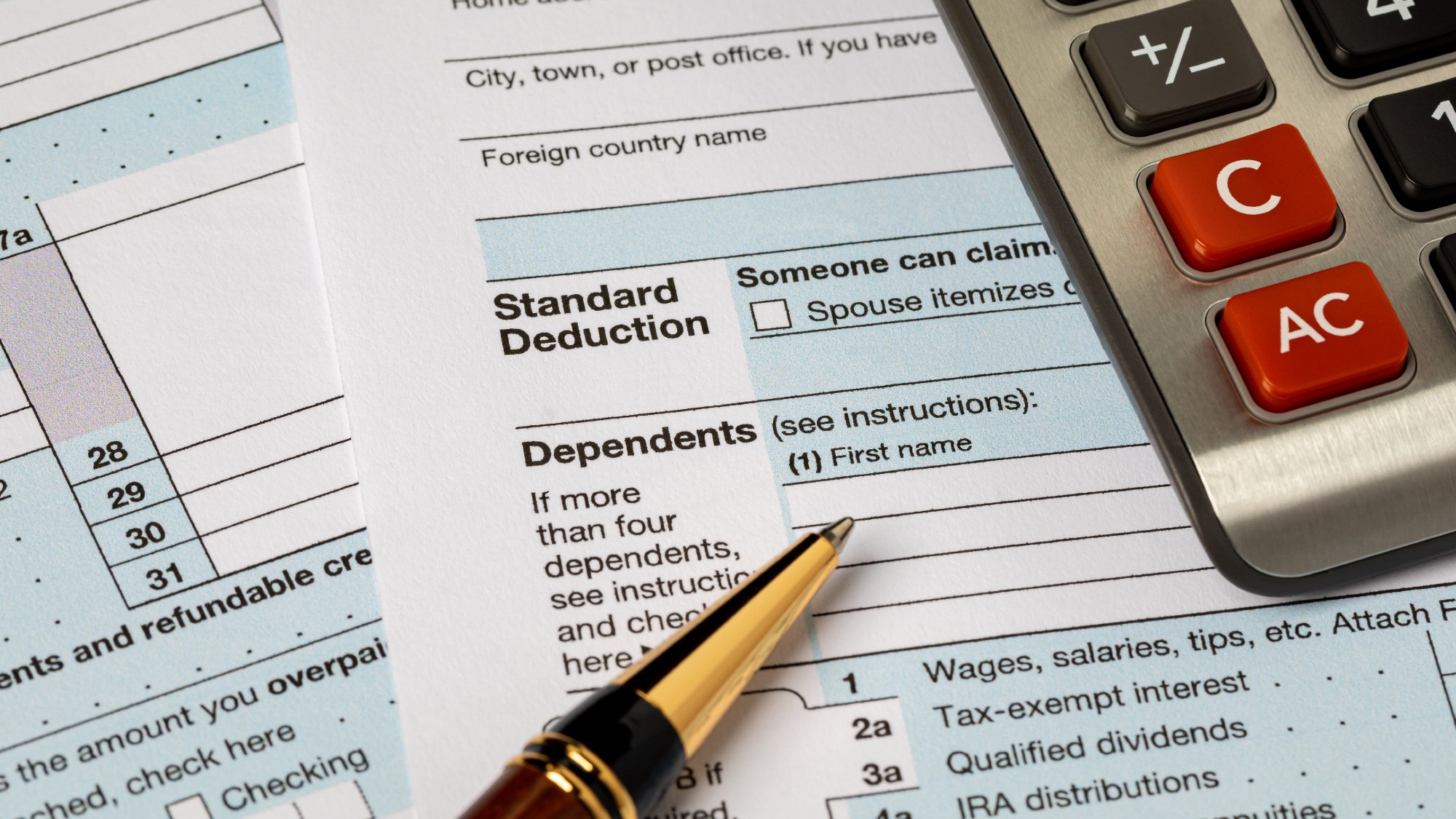Standard vs. itemized deductions: Which should you take?
The deduction you choose can impact how much you save on your taxes


A free daily email with the biggest news stories of the day – and the best features from TheWeek.com
You are now subscribed
Your newsletter sign-up was successful
Taking deductions when filing your taxes can reduce the amount you owe. But there are two different ways to claim deductions, and the one you choose can impact how much you save.
The far more common method is standard deductions, which "nearly 90% of taxpayers claim," said Intuit TurboTax. Choosing this method also tends to be far easier and less time-consuming. But for some taxpayers, it is still worth exploring the potential of itemized deductions, as overlooking it in favor of simplicity could "leave a significant amount of money on the table for Uncle Sam," said CNBC Select.
What is the difference between standard vs. itemized deductions?
Both methods allow you to deduct expenses from your taxable income, effectively lowering the amount of tax you owe. But with the standard deduction, you get a "specified dollar amount you can subtract from your taxable income when you file your taxes," said Ramsey Solutions, a financial content blog. With itemized deductions, by contrast, there are "certain amounts (the IRS calls them qualified expenses) you can subtract from your taxable income to lower your tax burden."
The Week
Escape your echo chamber. Get the facts behind the news, plus analysis from multiple perspectives.

Sign up for The Week's Free Newsletters
From our morning news briefing to a weekly Good News Newsletter, get the best of The Week delivered directly to your inbox.
From our morning news briefing to a weekly Good News Newsletter, get the best of The Week delivered directly to your inbox.
Because of these differences, "claiming the standard deduction is certainly easier," said Intuit TurboTax. "To itemize, you need to keep track of what you spent during the year on deductible expenses," and you "also need to maintain supporting documentation." Still, in certain situations, you may end up getting more back by going through that legwork.
When does taking the standard deduction make sense?
"Generally, a standard deduction is the best choice for taxpayers whose total itemized deductions do not add up to more than the standard deduction," said CNBC Select.
How can you know if that is the case? "If you don't have a mortgage or property taxes and don't have large medical bills or losses from a natural disaster (or other major deductible expense), you probably don't have enough itemized deductions to outweigh the standard deduction," said Experian.
To make this determination certain, you will need to do some math. This could be a "quick estimate," where you compare the total of any deductions you likely qualify for against the amount of the standard deduction for your tax filing status, said Experian. Or, you could do the "full calculation" by gathering up documentation to get a precise total of your deductions.
A free daily email with the biggest news stories of the day – and the best features from TheWeek.com
Who might benefit from itemizing deductions?
The answer to this question comes down to the math, too — generally, you will want to "take the standard deduction when it's larger than your itemized deductions," said Ramsey Solutions. Additionally, you will need to make sure you have the necessary documentation and records in hand.
Without doing the full math, however, there are some general indications that you may want to explore itemizing instead of just automatically taking the standard deduction. These include:
- You own a home
- You pay state and local taxes
- You donated to charity
- You had out-of-pocket medical expenses
- You live in a federally declared disaster area
Becca Stanek has worked as an editor and writer in the personal finance space since 2017. She previously served as a deputy editor and later a managing editor overseeing investing and savings content at LendingTree and as an editor at the financial startup SmartAsset, where she focused on retirement- and financial-adviser-related content. Before that, Becca was a staff writer at The Week, primarily contributing to Speed Reads.
